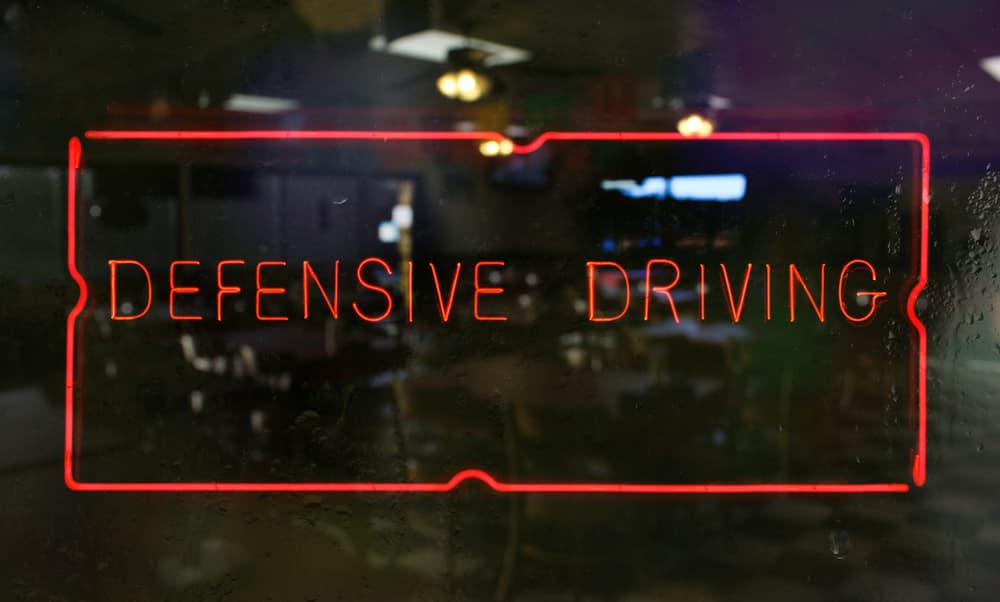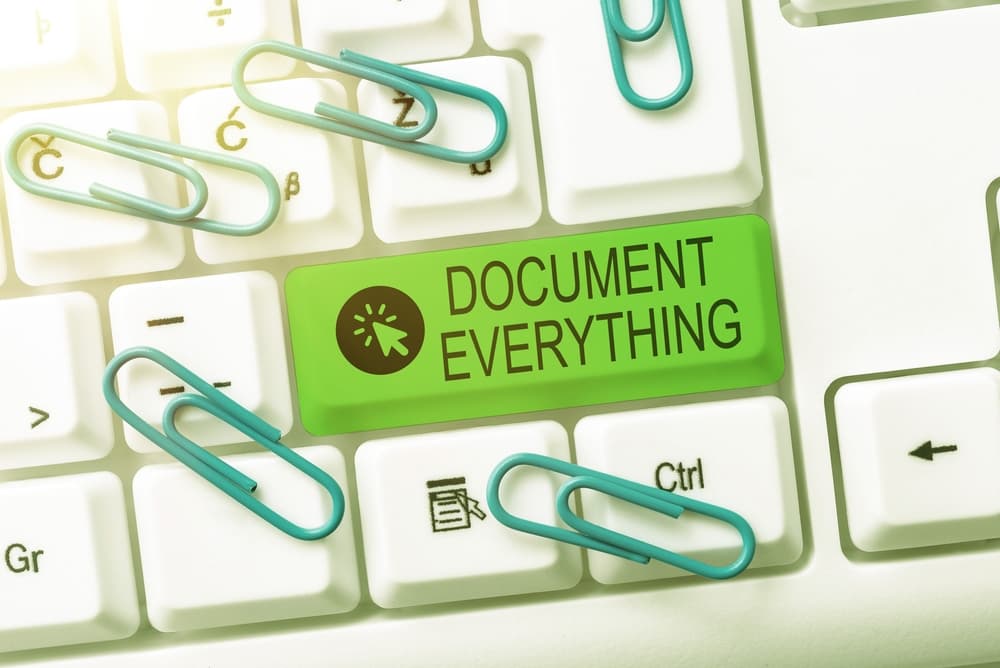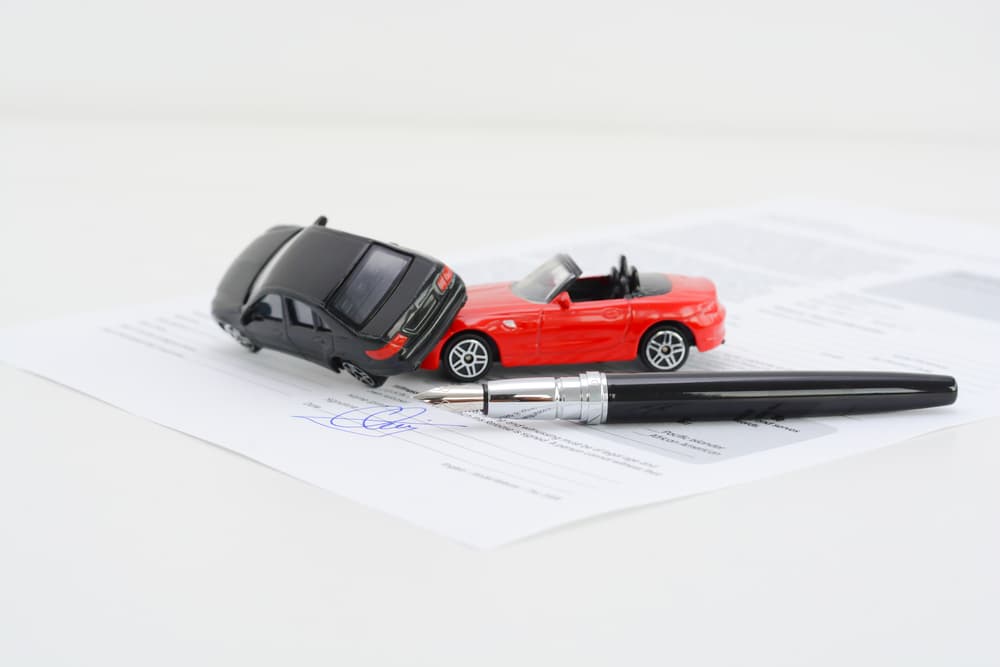As a rideshare driver, you're not just navigating traffic; you're managing a unique business on wheels, and with that comes a distinct set of risks and potential liabilities. The thought of being involved in a crash can be daunting, bringing concerns about injuries, vehicle damage, and the impact on your ability to earn.
The good news is that there are ways a rideshare driver can protect themselves from liability and ensure their peace of mind on the road. Together, let’s delve into essential insurance considerations, crucial preventative driving practices, and the vital actions to take immediately after an incident to safeguard your livelihood and well-being as a rideshare driver in Illinois.
Understanding Your Rideshare Insurance Landscape
A thorough understanding of insurance coverage is one of the most critical aspects of protecting yourself as a rideshare driver. It's a common misconception that Uber or Lyft's insurance entirely covers you at all times. The reality is far more nuanced, involving a tiered system that shifts based on your "status" on the app.
The Three Periods of Rideshare Coverage
In Illinois, the Transportation Network Providers Act (625 ILCS 57) sets forth specific insurance requirements for rideshare companies, creating different levels of coverage depending on whether you're offline, waiting for a ride, or actively engaged in a trip.
- Period 0: App Off (Personal Use)
- What it means: You are not logged into the Uber or Lyft app. Your vehicle is being used for personal errands, commuting, or other non-rideshare purposes.
- Insurance Coverage: Only your personal auto insurance policy applies during this period. Also, this is a critical point: many personal auto policies explicitly exclude coverage for commercial use. If you get into an accident while the app is off, and your personal policy discovers you drive for a rideshare company, they might deny your claim entirely.
- Protection Tip: This gap highlights the necessity of having a personal auto insurance policy that includes a "rideshare endorsement" or "rideshare gap coverage." This specialized coverage bridges the gap between your personal policy and the limited coverage provided by Uber/Lyft when you're in Period 1. Without it, you could be left with no coverage for an accident during your driving time if your insurer deems you were engaged in a commercial activity.
- Period 1: App On, Waiting for a Request
- What it means: You are logged into the Uber or Lyft app and are available to accept ride requests, but you have not yet accepted one.
- Insurance Coverage: During this period, Uber and Lyft typically provide limited contingent liability coverage. In Illinois, this usually amounts to:
- $50,000 for bodily injury per person
- $100,000 for bodily injury per accident
- $25,000 for property damage
- This coverage is "contingent" because it's designed to kick in only if your personal auto insurance denies the claim or if its limits are lower than these amounts.
- Protection Tip: While this coverage exists, the limits are considerably lower than when you have a passenger. This is another scenario where your personal rideshare endorsement can offer additional protection, or where having higher personal liability limits can provide a stronger safety net.
- Period 2 & 3: En Route to Pick Up or Transporting a Passenger
- What it means: You have accepted a ride request and are either driving to pick up a passenger or are actively transporting a passenger.
- Insurance Coverage: This is when Uber and Lyft's most substantial commercial insurance policies become primary coverage. They typically provide a robust $1,000,000 in third-party liability coverage for bodily injury and property damage. This also usually includes uninsured/underinsured motorist (UM/UIM) bodily injury coverage.
- Protection Tip: While this $1 million policy is significant, it's crucial to remember it primarily covers third-party damages (injuries to your passenger, other drivers, pedestrians, or property). It doesn't always fully cover your own vehicle damage or medical expenses beyond what your personal policy or the UM/UIM coverage might provide. Consider whether you need additional collision and comprehensive coverage on your personal policy, especially if your vehicle is valuable, as the rideshare company's contingent collision coverage often comes with a high deductible, for example, $2,500.
Why Personal Rideshare Insurance is Essential
Even with Uber and Lyft's coverage, a dedicated rideshare insurance policy or endorsement from your personal auto insurer is arguably your strongest defense against liability. As of 2025, the average monthly cost of rideshare insurance in Illinois can range from $37 to $63, depending on the insurer and coverage. This relatively small investment can save you from immense financial strain.
- Filling the Gaps: It specifically addresses the "gap" in coverage during Period 0 and Period 1, when Uber/Lyft's coverage is either non-existent or limited.
- Avoiding Policy Denial: It prevents your personal insurance company from denying claims if they discover you're operating commercially without proper notification.
- Protecting Your Vehicle: Many personal policies with rideshare endorsements offer better collision and comprehensive vehicle coverage, even online, often with lower deductibles than the rideshare company's contingent coverage.
Proactive Driving: Minimizing Your Risk of Causing an Accident
Beyond insurance, your driving habits play a critical role in protecting yourself from liability. Defensive driving is not just about safety; it's about reducing your chances of being deemed at fault in an accident, which is paramount in Illinois' "at-fault" insurance system.
Practice Defensive Driving Habits

- Stay Alert and Focused: Distracted driving is a leading cause of accidents. Put your phone in a mount where it's easily visible for navigation, but avoid looking at it unnecessarily. Resist the urge to text or engage in lengthy conversations while driving. The Illinois texting-while-driving ban is strictly enforced.
- Anticipate and Plan: Always scan the road ahead, looking for potential hazards, sudden stops, or erratic drivers. Know your route in advance to minimize last-minute lane changes or sudden braking. Apps like Waze or Google Maps can help you predict traffic and road conditions.
- Maintain Safe Following Distances: The "three-second rule" (or more in adverse weather/road conditions) provides reaction time to avoid rear-ending another vehicle, a common accident type where you are often presumed at fault.
- Be Mindful of Your Passengers: While focusing on the road, also be aware of your passengers' entry and exit. Ensure they buckle up. If they are particularly distracting, you have the right to end the ride safely.
- Avoid Aggressive Driving: Speeding, tailgating, and reckless lane changes increase your accident risk and likelihood of being found at fault. Stick to posted speed limits and traffic laws. Like many major cities, Chicago has complex traffic patterns; patience is key.
- Regular Vehicle Maintenance: A well-maintained vehicle is a safer vehicle. Regularly check your tires, brakes, lights, and fluids. A mechanical failure could contribute to an accident and introduce questions about your liability.
Adhering to Rideshare Company and Local Regulations
As a rideshare driver, you're bound by more than just general traffic laws.
- Driver Requirements: Ensure your driver's license is valid and current, and that you meet the age and experience requirements set by both Illinois law and the rideshare companies. Typically, you must be 21+ years old, or 25+ for Lyft, with at least one year of driving experience.
- Vehicle Requirements: Your vehicle must meet the specific model year, door count, and condition requirements. For example, Uber requires a vehicle 16 years old or newer, while Lyft's requirements can vary by city.
- Emblem Display: Always display your rideshare company's emblem while in driver mode. This helps passengers and law enforcement identify your vehicle and confirms your status as an active rideshare driver, which is crucial for insurance purposes if an accident occurs.
- Hourly Driver Mode Limits: Be aware of and adhere to mandated breaks. For example, Chicago regulations limit drivers to 12 hours in driver mode within a 24-hour period, followed by an 8-hour break. Driver fatigue is a significant safety risk and can easily contribute to an accident.
After an Accident: Critical Steps to Protect Your Position
Despite your best efforts, accidents can happen. Immediately following a crash, your actions are paramount in protecting yourself from undue liability.
At the Scene: Document Everything

- Prioritize Safety & Seek Medical Attention: First and foremost, ensure your safety and the safety of your passengers. Call 911 immediately to report the accident to law enforcement (Chicago Police Department if in the city) and request emergency medical assistance if anyone is injured. Even if you feel fine, get a medical evaluation. Your health is the priority, and documentation of any injuries is crucial.
- Do NOT Admit Fault: This cannot be stressed enough. Even if you feel a sense of responsibility or wish to apologize for the situation, do not say anything that could be interpreted as admitting fault. Stick to the facts. Illinois is an "at-fault" state, and any admission can severely undermine your position.
- Gather Information from All Parties, including:
- Names, contact information, and insurance details from all other drivers involved.
- License plate numbers, make, and model of all vehicles.
- If you had a passenger, get their name and contact information if they are willing to provide it.
- Document the Scene with Photos and Videos: Use your smartphone extensively:
- Damage to all vehicles from multiple angles.
- The position of the vehicles after the crash.
- Skid marks, debris, or anything on the road that indicates the point of impact.
- Traffic signs, signals, and road conditions.
- Any visible injuries to yourself or others.
- Identify and Obtain Witness Information: Independent witnesses are invaluable. Ask for their names, phone numbers, and a brief statement of what they observed.
- Get a Police Report: Always request that the police come to the scene and file an official accident report. This report is a crucial piece of evidence that will be referenced by insurance companies and potentially in court. Get the report number.
Reporting the Accident and Dealing with Insurers

- Report to Uber/Lyft Immediately (but Carefully): Use the in-app accident reporting feature or contact their support as soon as it's safe. Provide only factual details. Be brief. Screenshot your trip details, including your status at the time of the crash (Period 0, 1, 2, or 3).
- Notify Your Personal Insurance Company: Even if you think Uber or Lyft's insurance will cover it, you must notify your personal auto insurance provider. If you have a rideshare endorsement, they need to know.
- Decline Recorded Statements (from Any Insurer): Expect calls from various insurance adjusters (your personal insurer, the other driver's insurer, and the rideshare company's insurer). Politely decline to give any recorded or written statements without first consulting with a legal professional. Adjusters are trained to ask questions designed to elicit responses that could harm your claim or shift fault to you.
- Do NOT Sign Anything: Never sign any medical releases, settlement agreements, or other documents from any insurance company without legal review. You could unknowingly waive critical rights.
- Keep Meticulous Records: Maintain a file with all documents related to the accident: police report, medical bills, receipts for vehicle repairs, lost income statements, and any communication with insurance companies. A journal documenting your daily pain and limitations can also be helpful.
How Legal Guidance Can Help Protect You
Even when you believe you've done everything right, navigating the aftermath of a rideshare accident, especially when liability is contested, can be exhausting. As an independent contractor, you often bear a significant burden in proving your case.
Why Legal Assistance is Crucial for Rideshare Drivers
- Understanding Complex Insurance Policies: A lawyer who focuses on rideshare accidents understands the intricacies of the multi-layered insurance policies (personal, rideshare gap, Uber/Lyft commercial) and can identify all potential sources of coverage for your damages and any claims made against you.
- Establishing or Disputing Fault: They can conduct an independent investigation, gather crucial evidence (including obtaining rideshare app data, black box data, traffic camera footage), and work with accident reconstruction experts if necessary to prove the other party's fault or defend you against wrongful claims of liability.
- Negotiating with Multiple Insurers: Dealing with multiple insurance companies, each with its own agenda, is a bureaucratic nightmare. An attorney can handle all communications, ensuring your rights are protected and you don't inadvertently say or do anything to jeopardize your position.
- Protecting Your Income and Vehicle: If your vehicle is damaged or you're injured and unable to drive, your income as a rideshare driver is directly impacted. A lawyer can help you pursue compensation for lost wages, vehicle repairs, and diminished earning capacity.
- Defending Against Lawsuits: If you are sued, an attorney may represent your interests, build a strong defense, and negotiate on your behalf.
- Navigating Illinois Law: They are intimately familiar with Illinois' traffic laws, personal injury statutes, and comparative negligence rules, ensuring your case is handled within the proper legal framework and deadlines.
If You Have Questions About How You Can Protect Yourself From Liability as a Rideshare Driver, Turn to Legal Rideshare Injury Lawyers
As a rideshare driver in Chicago or anywhere in Illinois, protecting yourself from liability is more than just driving carefully; it's about being prepared for the unexpected and having a knowledgeable advocate. If you've been involved in a rideshare accident, navigating the complex legal and insurance landscape can be incredibly challenging. You've invested in your vehicle and your time to provide a valuable service, and you deserve comprehensive protection.
Don't let the stress of a rideshare accident derail your ability to drive and earn. Contact LegalRideshare Injury Lawyers today at (312) 767-7950 for a free and confidential consultation.
As the nation's first law firm singularly dedicated to rideshare and gig economy accidents, we understand the unique legal challenges rideshare drivers face. We're here to provide clarity, unwavering support, and to fight for your rights, helping you understand your options and the legal process to safeguard your future. We're available 24/7 to help you.